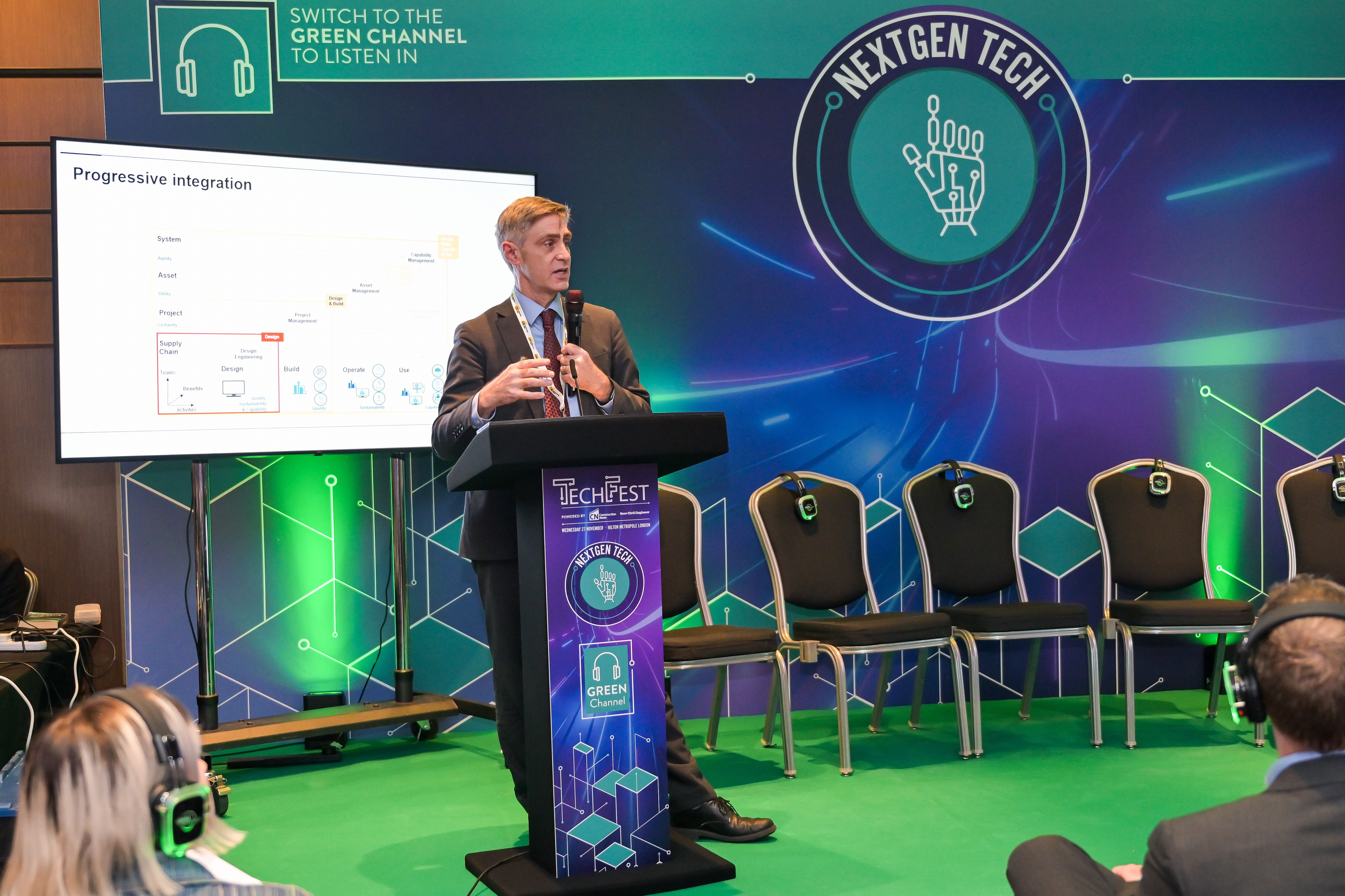All Services
- Management overview
- Cost and commercial management
- Digital consulting
- Economics, policy and regulation
- Health and care systems
- Investment and business case
- Land consultancy
- Operations and maintenance
- Procurement and supply-chain
- Project and programme management
- Risk and planning
- Strategic asset management

Expert insights on issues that transform business, increase sustainability and improve lives

Meet some of our passionate problem-solvers, constructive creatives and inspiring innovators

Getting the basics right today is essential to making the most of the new technology of tomorrow
Cyber physical infrastructure which brings together the Internet of Things, artificial intelligence and connected digital twins could create a really exciting space for the construction industry 10 years from now. But there are other – more critical – issues that need to be addressed in that timeframe to set the sector up to successfully use such technology.
Being invited to deliver a keynote speech at New Civil Engineer’s TechFest event in late 2024 on the topic of what the construction industry would look like in 2034 is what galvanised my thinking. However, there are some technologies that we don’t yet know about that will come and go in the next 10 years, so in reality predicting what technology we will be using is not the important thing.
In preparing for the event, I was keen not to focus on specific technological advancements but rather share understanding on the broader trends and principles that will persist. Getting those things right will affect our ability to adopt cool emerging technology in 10 years’ time, as well as address the issues that have impacted our ability to improve efficiency and productivity for many past decades too.
Trends and principles
There are a number of global trends that are already affecting how we plan, construct and use the built environment that will have an increasing impact on what we do over the next 10 years:
- Demographic shifts are impacting the workforce
- Urbanisation is changing where people live and work
- Climate change is starting to affect everything
- Technological advancements are becoming more rapid than the industry’s ability to adapt
- Economic and geopolitical shifts are creating a context of uncertainty.
All of this speaks of change, however there are some principles that won’t change over the next decade and we must keep those in mind as we consider how to best innovate, adopt and deploy technology.
At the centre of these is the need to put people at the heart of digitalisation - if we stop putting the benefit to people at the core of the drive for digitalisation, we will get it wrong. Whatever technology we use, it must be about enabling people to do their work better and more efficiently. We already have a lot of technology with the potential to do that so the focus must be on using that well now to get the right information to the right people at the right time to make better informed decisions. If we don’t do this, we are not going to realise the full benefit of any new innovations over the next 10 years.
Digitalisation over the next decade must also challenge processes so we are not doing the same things in 2034 that we have always done. We need to stop just being excited by shiny new technology and become more effective at integrating it better to deliver value. At the moment the infrastructure industry still operates in silos and, unless we break those down over the next decade, we are not going to improve our processes and share information. This is critical to unlock the productivity and efficiency challenges we face today, which were the same 10 years ago and could still be the same in 10 years’ time without properly addressing integration.
Essentially, there are four key issues that we must keep in mind as we progress through the next decade and whatever technological advancement that may bring, we must work harder to:
- Value the information served by technology, not just the technology itself
- Place importance on technology adoption, not just its development
- Work to integrate technologies, not just a focus on the individual isolated technologies
- Focus on the culture, behaviour change and skills needed to equip workforces and organisations to use new technology, not just the technical application.
If as an industry we truly believe that use of technology holds the key to improving the way the sector delivers work over the next 10 years, then we must also work on improving data quality, access and security. Only by doing that will we unlock the information and insights that will be vital to improving decision making while also managing the impact of mega trends on our work.

Mark provides strategy-level advice to our key clients on digital transformation, connected digital twins and broader industry transformation.
- Biography
- Mark Enzer
-
Get in touch
This is a modal window that allows user to contact the person via a form. Escape key will close this modal window and take you to the page content. Tab through the rest of this modal window to navigate and populate the form. Press Enter key to submit the form once all fields have been correctly populated.
You might also be interested in
Subscribe for exclusive updates
Receive our expert insights on issues that transform business, increase sustainability and improve lives.
